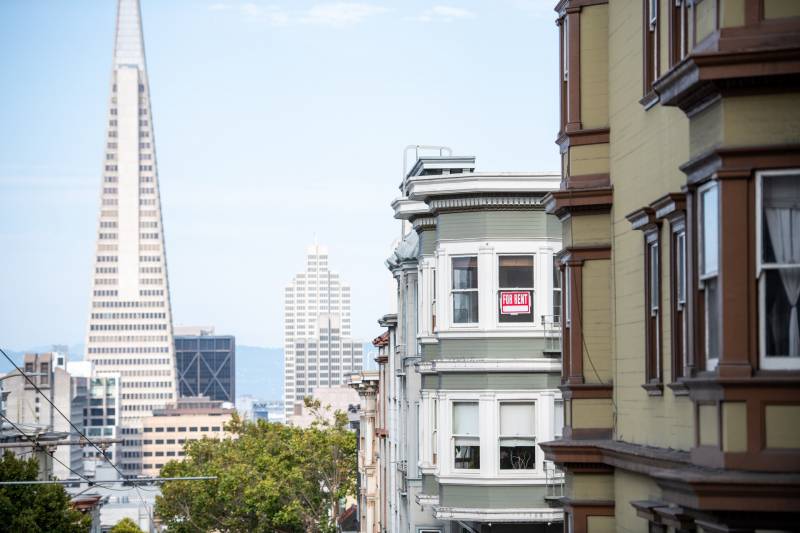The National Coalition for a Civil Right to Counsel estimates that less than 5% of tenants facing eviction have representation nationwide. Meanwhile, about 80% of landlords use attorneys.
Having a lawyer makes a difference, Prochovnick said. Between 2022 and 2023, the most recent fiscal year that data was available, TRC provided legal services to about 1,800 tenants, according to the Mayor’s Office of Housing and Community Development. More than 1,600 received favorable outcomes and remained housed.
Who gets full representation is determined by a vulnerability scoring system, Prochovnick said. Tenants at the highest risk, including those who are elderly, have young children, or deal with mental or physical disabilities or language barriers, are prioritized.
EDC works with seven other nonprofits to provide representation for eviction cases, including the Tenderloin Housing Clinic and Open Door Legal. The program is currently able to provide full legal representation to 84% of people seeking services, according to the city. The other 16% are eligible for limited support.
Of TRC’s clients during the 2022–23 fiscal year, 95% were low income, including 83% who qualified as extremely low income. The Tenderloin, Mission and South of Market neighborhoods had the highest client rates.
During Monday’s hearing, Preston said that the program still has gaps, including the 16% of clients who cannot get full-scope services.
Prochovnick said that for all clients, TRC submits the initial paperwork responding to eviction notices so that they do not lose their housing by default and assigns an attorney to accompany them to hearings.
The biggest barrier to providing everyone with full services is staffing. Currently, the program has eight vacant attorney positions. Prochovnick said that the program has adjusted salaries and introduced a training pipeline to increase its staff. Currently, it has nine legal fellows it plans to take on as supervising attorneys within the next fiscal year.
Both Prochovnick and Preston said that the long-term goal is to grow the program’s funding to meet increasing demand and fill in gaps. Since San Francisco’s COVID-19 eviction moratorium expired last June, the number of evictions filed in the city has risen. In 2019, about 2,500 eviction notices were filed. That number dipped during the pandemic, but Prochovnick said this year, evictions are “inching toward 3,000.”
For the fiscal year that begins in July, though, EDC is solely focused on maintaining its full budget, as the city is expected to make cuts across departments to address a significant deficit. Prochovnick said it would be a mistake for any cuts to affect TRC.
“Our average cost per case is about $6,300. With our 92% success rate, that’s $6,300 to prevent homelessness, while a shelter bed is about $70,000 a year,” she said. “That expense that we’re saving the city is huge.”

